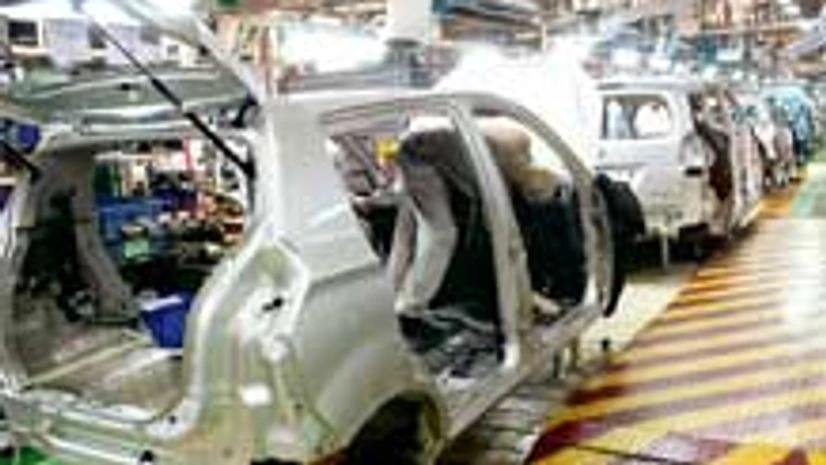Maruti Suzuki, India’s largest carmaker, has raised the average gross salary of the 12,900 workers at its facilities in Manesar and Gurgaon by Rs 16,800 a month, spread through three years beginning April this year. This is seven per cent lower than the salary rise of Rs 18,000 given by the company for the three years ended March this year. Last week, Ford had signed a wage agreement with the workers’ union at its Chennai plant, approving a rise of Rs 15,000 a month, spread through three years. The average salary of the workers is Rs 30,000-35,000 a month.
In December last year, luxury carmaker BMW had announced a wage increase of Rs 18,000 (through three years) for workers at its Chennai plant.
Maruti workers who don’t avail of the transport services to work and buy a car will be entitled to a monthly benefit of Rs 2,000 for seven years.
ALSO READ: Maruti Suzuki most influential brand: Study
An agreement in this regard was reached after 40 meetings, spread through six months.
Workers will get a rise of Rs 8,430 a month for this financial year, with retrospective effect from April. For the second and third years, the increase will be of Rs 4,200 each.
The estimated financial impact of the wage rise on the company this financial year is about Rs 130 crore. An impact of Rs 65 crore each is estimated for the second and the third years. Maruti has already budgeted for the increase. For the June quarter, the company showed an expenditure of Rs 463 crore on employee benefits (for workers and executives), against Rs 353 crore in the corresponding period last year.
Maruti Suzuki, which accounts for about half the domestic passenger vehicle market, reported a record profit of Rs 3,711 crore for FY15. For the quarter ended June this year, its profit surged 56 per cent to Rs 1,193 crore.
The rise in salaries might set a benchmark at most auto and auto component makers, especially in north India. Hyundai, Maruti’s closest competitor and the second-largest passenger vehicle player in India, has 2,300 permanent employees at its Chennai plant. In 2012, Hyundai had announced a wage increase of 38-42 per cent for three years, said G Vinayagam, president, United Union of Hyundai Employees.
Currently, the average cost-to-company for Hyundai is Rs 30,000-50,000. The company and its worker unions are negotiating for the next revision. They hope to conclude the process in about two months.
In Gujarat, an emerging automobile hub, where Maruti is setting up its third plant and where the likes of Tata and Ford are present, the wage rise 6-10 per cent this year. The average salary for workers at the shop floor is estimated at Rs 15,000-20,000 a month.
In the state’s Sanand belt, which has Tata Motors and Ford India plants, the average starting salary for those passing out of Industrial Training Institutes is Rs 8,000-10,000 a month, while that for a permanent worker starts from Rs 14,000 a month and could go up to Rs 40,000 a month, according to industry estimates. The wage increase announced by Maruti follows several rounds of negotiations with employee unions.
“The unions of both the Gurgaon and Manesar plants, including those of Maruti Suzuki Powertrain, reached an agreement with the management late last evening,” said Kuldeep Janghu, general secretary of the Maruti Udyog Kamgar Union General Secretary.
He added on an average, the workers earned a monthly gross salary of Rs 30,000 to Rs 32,000. Justifying the lower increase compared to the last time, Janghu said on an average, auto companies were announcing a rise of Rs 14,000-15,000 for a three-year period.
TOWARDS BETTER TIES?
FY16
- Workers to get an average CTC rise of Rs 8,430/month
- CTC rise of Rs 4,200/month
- CTC to go up by Rs 4,200/month
- Workers buying new car (stop using company bus) to get monthly allowance of Rs 2,000 for 7 yrs
- Average rise in most auto and auto component makers expected at Rs 14,000-15,000 for 3 yrs
- Ford raised monthly wages for its Chennai plant workers by Rs 15,000 (over 3 years)
- In December ‘14, BMW announced a monthly wage rise of Rs 18,000 (3 years), effective April ‘14

)
